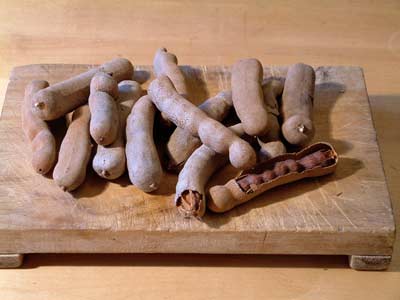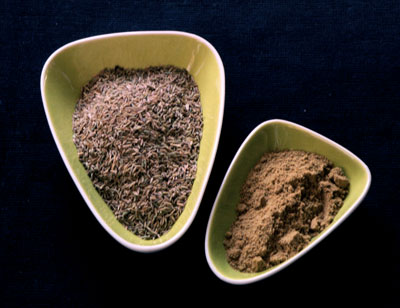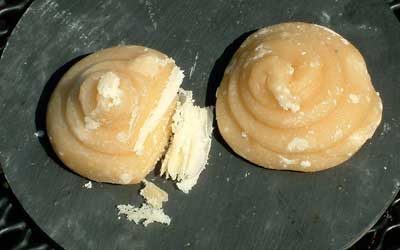
Tamarind. A sour-sweet fruit, sometimes known as the Indian date, used as a souring agent. It comes in long, dry brown pods which look almost like dried broad bean pods. Inside is a long, segmented fruit, like a long brown caterpillar. Each segment contains a hard, shiny black seed. As the pods dry the fruit becomes sweeter. A visitor from Mauritius suggested shaking the tamarind and, if you could hear that the fruit had detached and was rattling a little inside the pod, you would find that the fruit was sweet. All you need to do is to remove the pod and then chew the fruit, discarding the seeds. It is also available mashed and formed into a pulpy block or as a juice. In this form it is used like lemon juice.

Cumin seeds. The white seeds are commonly used. It is a musty smelling spice, the flavour of which is improved by roasting or frying.
Asian basil. Asian basil is slightly coarser than the sweet basil of Europe, and with a more robust aroma. It survives cooking in stews, adding a fresh menthol, camphor end of the spectrum.

Jaggery or gur. Palm sugar, obtained from the sap of, usually, the date or Palmyra palm. It is used extensively in Indian cooking and has a flavour reminiscent of Demerara sugar (US: light brown (granulated) sugar). Palm sugar is the better quality of the two.